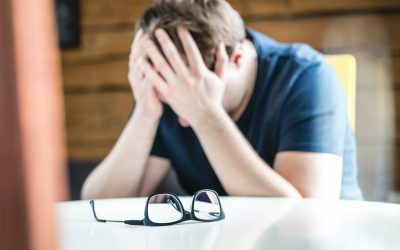However, each of us has what’s called an “internal sleep rhythm,” or circadian rhythm. This rhythm varies from person to person, and represents the time when our body and mind start relaxing and winding down for the day. Therapy and medication can play critical roles in managing persistent insomnia after alcohol detox. On the medication front, various options ranging from over-the-counter sleep aids to prescription sleeping pills can help manage insomnia. It’s important to note, however, that these are usually a short-term solution and should be used under a healthcare provider’s guidance.
How Often Do We Eat Before Bed, and How Bad Is It for Us?
After about a week, the symptoms start to calm down, and by the end of the first month, most people see significant improvement, if not complete disappearance, in insomnia. It’s estimated that by the end of 90 days, most people get past insomnia entirely, with rare cases of individuals experiencing it beyond this point. The rebound effect is a principal actor in the drama of alcohol withdrawal and the resultant insomnia. As we bid goodbye to alcohol, our bodies fight to restore equilibrium.
Let the beat drop
Alcohol is known to disrupt this rhythm, altering our sleep patterns when consumed in excess. When you quit alcohol, the disrupted rhythm doesn’t instantly revert to normal – it takes time to normalize. Even as the harsh symptoms of withdrawal fade, sleep disturbances could persist. Research shows that individuals recovering from alcohol use disorder often continue to experience fragmented sleep, insomnia, and difficulties achieving appropriate sleep duration. It reduces the time it takes to nod off (known as sleep onset latency), promoting deep sleep initially. But as the night progresses, this deep sleep period decreases, and you end up spending more time in less restorative sleep stages (like light sleep).
ADHD insomnia: How does having ADHD affect sleep?
Doing so without medical supervision can trigger a new addiction to another substance.
New Study Shows Insomnia More Common in COVID-19 Survivors
After sipping that glass of wine or beer, you might find yourself drifting to sleep faster. However, it’s vital to comprehend how alcohol affects sleep patterns to grasp the knock-on effects of alcohol withdrawal. In fact, research suggests that almost a third of adults experience chronic insomnia, or persistent difficulties in falling or staying asleep. However, for those of us without insomnia, tossing and turning in bed after a stressful day can be a familiar experience. Those seeking restful sleep are advised to moderate their alcohol intake and consider alternative sleep aids and strategies for better sleep hygiene. Whatever anxieties,demands or pressures are making you think you need alcohol to fall asleep – Subconsciously takes you away from it all.

Avoid reading e-books
The researchers found that when using the e-book, the participants took longer to fall asleep. However, try to avoid this, as it can adversely affect a healthful sleep cycle. Below, we’ll explain why you can’t sleep without https://thecupertinodigest.com/top-5-advantages-of-staying-in-a-sober-living-house/ alcohol, how to sleep without alcohol, and how the RISE app can help you get the best sleep possible — even if you decide to have a drink. A small nightcap before bed to help you drift off doesn’t sound too harmless, right?
- You can do more difficult poses and it’s a great workout that can help tire you out, or you can keep it very simple and just do some short guided meditations that can help lull you into a sleep.
- If you find music too distracting, some people also tout the benefits of white noise for sleep.
- It then suggests positive, influential messages that have lasting results on your everyday behaviour.
- The towel won’t stay cold for the entire night, but it should stay cool enough that you can drift off to sleep.
- Your sleep need is determined by genetics and it varies from person to person.
- Others plan activities that don’t typically involve alcohol (44%) or just choose their favorite non-alcoholic drink to enjoy while socializing (36%).
- Good sleep hygiene will help you fall asleep faster and stay asleep longer, so you don’t need to have something before bed for sleep.
Traditionally, it was believed that back sleepers (supine) had a better quality of sleep. An essential oil diffuser could be helpful in infusing your room with relaxing scents that encourage sleep. A variety of different scents, such as peppermint and lavender, may help improve sleep. Watching TV, playing video games, and using a smartphone may make it significantly harder for you to fall — and stay — asleep. When, where, and for how long you exercise may have a significant impact on your sleep.

Like nearly all of the body’s organs, the liver functions according to circadian rhythms. Alcohol interferes with these circadian rhythms regulating the liver, and can contribute to compromised liver function, liver toxicity, and disease. Caffeine, which is found in coffee and chocolate, is notorious for keeping Sober House you awake. “The half-life of caffeine is about five to seven hours, so for most people, avoiding it in the early afternoon is best,” suggests Dr. Drerup. You are what you eat — and what you eat can affect how you sleep. “What we eat might impact our sleep quality and sleep duration,” says Dr. Drerup.
